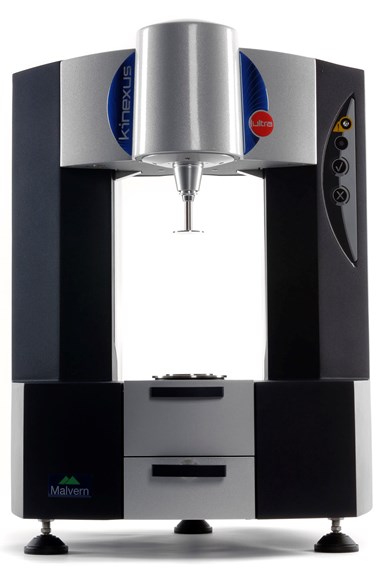New-Generation Rotational Rheometers
What are said to be radically new rotational rheometers for controlled stress/strain testing reportedly enable users to spend less time learning how to use the system.

What are said to be radically new rotational rheometers for controlled stress/strain testing reportedly enable users to spend less time learning how to use the system. Available from , are the Kinexus pro, a high-end instrument for a wide variety of routine and research applications, and the Kinexus ultra for even the most demanding low-torque applications, such as weakly-structured and small-volume samples. Kinexus units reportedly incorporate technological innovations in the most critical areas of rheometer design, from sample preparation and loading to measurement setup and operation, to data analysis and reporting. Central to their operation is the rSpace intelligent software system that invites users to work at the level most appropriate to them. Also critical is the rMotion drive, a dynamically optimized motor that has a special adaptive air bearing that automatically configures its operation according to test conditions. In addition, newly designed environmental controllers and geometries for Kinexus are said to be truly “plug and play.”
Related Content
-
Powerful and Versatile Infrared Spectrometer
Thermo Fisher Scientific’s Nicolet Apex FTIR is well suited for a wide range of applications including materials analysis.
-
Tracing the History of Polymeric Materials -- Part 30: Polyurethane
In the world of polymers, polyurethane chemistry is probably the most versatile. This a resulted in a wide range of products made from these materials and given the industry the flexibility to respond to the progressive march of regulatory concerns.
-
Try This Alternate Method for Heating Your Torque Rheometer
Rheometers are generally not on all the time. And most users have found that the first test run in the instrument after heating up is not very reliable and is usually discarded. Try this method instead.


